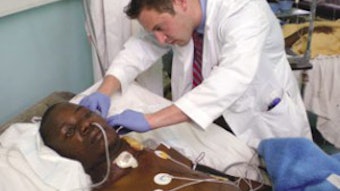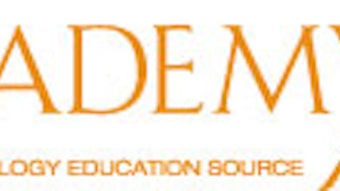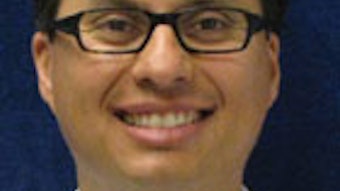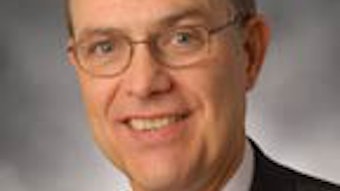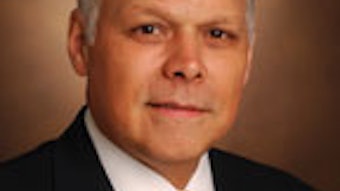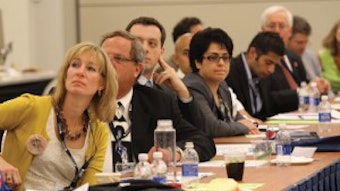A New Year, a New Congress
January is a month of new beginnings. As such, when the 113th Congress convenes this month it will face many of the same issues, but in a slightly altered environment. Read on to learn more about some of the AAO-HNS federal legislative priorities, and what we can expect in the coming year. Healthcare Reform Although the results of last year’s elections failed to provide a clear outlook for what will be accomplished in the 113th Congress, they did finally confirm that the Affordable Care Act (ACA) is here to stay. It is unlikely that the Republican-controlled U.S. House of Representatives will continue efforts this year to pass legislation fully repealing the ACA. Instead, efforts will shift toward developing legislation designed to modify and/or improve the ACA. In particular, members of the U.S. House will likely renew efforts to repeal individual provisions from the ACA that have lacked popularity within the Chamber. The most notable example is the Independent Payment Advisory Board (IPAB). The IPAB, a brainchild of U.S. Senator Jay Rockefeller (D-WV), which charges an “independent” board with developing recommendations to reduce costs within the Medicare program, has many critics in the House. In addition, the IPAB is widely opposed by various stakeholders, including the AAO-HNS and a vast majority of national physician organizations. In the 112th Congress, legislation (H.R. 452) to repeal the IPAB garnered broad bipartisan support, but closed-door politics prevented the bill from receiving a “stand-alone” floor vote. It is likely that IPAB repeal will remain a top priority in the U.S. House this year. However, while the President and many members of the Senate continue to herald the importance of the IPAB, the overall success of repeal efforts will remain difficult. Scope of Practice The AAO-HNS has long been at odds with the audiology community regarding physician referral requirements within the Medicare program. For years, the American Academy of Audiology (AAA) has sought passage of federal legislation that would provide audiologists with unlimited direct access to Medicare patients without a physician referral. Although the AAO-HNS has, at times, engaged AAA in an effort to negotiate our varying positions, our organizations remain in disagreement on this particular issue. In the 112th Congress, the AAO-HNS was successful in mitigating support for the direct access bill (H.R. 2140). However, strategic changes in the audiology community and developments in the latter part of 2012 have altered our course on this issue and increased the likelihood that direct access will reign as our top specialty-specific priority in the 113th Congress. In November 2012, two direct access-related announcements were made. First, AAA issued a statement publicizing a “study” that claimed providing direct access would result in $240 million in savings to the Medicare system over 10 years. The result of the study, which was commissioned by the AAA, presumes a “preventative savings” and directly contradicts previous reports regarding direct access, including a 2007 report by the Centers for Medicare and Medicaid Services that concluded direct access would actually increase costs for the federal government. In the same week, the Academy of Doctors of Audiology (ADA) announced their “18 By 18” campaign, a comprehensive effort to obtain a “limited license physician” status by amending Title XVIII (18) of the Social Security Act to provide for the treatment of audiologists as “physicians” for purposes of furnishing audiology services under the Medicare program, and to provide for a broadened scope of audiology services available for coverage under the Medicare program. Given passage of the ACA and the President’s subsequent reelection, there is a slightly more favorable environment on Capitol Hill regarding efforts to expand access to nonphysician healthcare providers to help fill “gaps” in care. The AAO-HNS will be aggressive in the 113th Congress to ensure new and returning Members of Congress are well educated in regard to the potential dangers and patient safety concerns associated with direct access. Medicare Physician Payment Overall, Members of Congress continue to support the notion of reforming the Medicare physician payment system. However, efforts to repeal the flawed Sustainable Growth Rate (SGR) formula continue to elude Congress due to the exorbitant cost associated with full repeal. At the time of printing, Congress had not yet acted to avert the 26.5 percent cut in Medicare physician payments scheduled to take effect on January 1, 2013. Since Medicare physician payments continue to cause instability in the Medicare system, it is still possible that substantial reform and/or repeal of the SGR may be included in a broad deficit reduction plan. The physician community, including the AAO-HNS, has put forth principles by which a new system should be based. An optimist could conclude that reform of the system is perhaps more likely to occur in the 113th Congress than in the last several years. Medical Liability Reform The AAO-HNS has long supported comprehensive medical liability reform efforts. However, the politicized nature of the issue has prevented any meaningful progress from being made. In the 113th Congress, discussion regarding medical liability reform may increase due to ongoing efforts to develop a robust deficit reduction plan. However, the focus of reform discussions may shift away from standard “cap” legislation to include a more diverse “menu” of reform mechanisms, perhaps including medical courts, safe harbor exceptions, alternative dispute resolution plans, and further exploration of “disclosure and offer” programs. Graduate Medical Education Funding Due to the heightened fiscal scrutiny anticipated in the 113th Congress, the AAO-HNS expects some Members of Congress and the Administration to continue putting forth proposed reductions in Graduate Medical Education (GME) as a means to reduce costs within the Medicare program. The continued attacks on GME come with some level of irony given well-documented instances of physician shortages across the nation. The AAO-HNS and others in the physician community will continue to aggressively promote the importance of (at least) maintaining existing GME funding levels in the 113th Congress. If you would like more information regarding AAO-HNS federal legislative priorities, please email legfederal@entnet.org. In addition, to receive timely updates on the aforementioned federal issues, as well as state legislative priorities and grassroots programs, AAO-HNS members are encouraged to join the ENT Advocacy Network. To join, email govtaffairs@entnet.org.

Healthcare Reform
Although the results of last year’s elections failed to provide a clear outlook for what will be accomplished in the 113th Congress, they did finally confirm that the Affordable Care Act (ACA) is here to stay. It is unlikely that the Republican-controlled U.S. House of Representatives will continue efforts this year to pass legislation fully repealing the ACA. Instead, efforts will shift toward developing legislation designed to modify and/or improve the ACA. In particular, members of the U.S. House will likely renew efforts to repeal individual provisions from the ACA that have lacked popularity within the Chamber.
The most notable example is the Independent Payment Advisory Board (IPAB). The IPAB, a brainchild of U.S. Senator Jay Rockefeller (D-WV), which charges an “independent” board with developing recommendations to reduce costs within the Medicare program, has many critics in the House. In addition, the IPAB is widely opposed by various stakeholders, including the AAO-HNS and a vast majority of national physician organizations. In the 112th Congress, legislation (H.R. 452) to repeal the IPAB garnered broad bipartisan support, but closed-door politics prevented the bill from receiving a “stand-alone” floor vote. It is likely that IPAB repeal will remain a top priority in the U.S. House this year. However, while the President and many members of the Senate continue to herald the importance of the IPAB, the overall success of repeal efforts will remain difficult.
Scope of Practice
The AAO-HNS has long been at odds with the audiology community regarding physician referral requirements within the Medicare program. For years, the American Academy of Audiology (AAA) has sought passage of federal legislation that would provide audiologists with unlimited direct access to Medicare patients without a physician referral. Although the AAO-HNS has, at times, engaged AAA in an effort to negotiate our varying positions, our organizations remain in disagreement on this particular issue. In the 112th Congress, the AAO-HNS was successful in mitigating support for the direct access bill (H.R. 2140). However, strategic changes in the audiology community and developments in the latter part of 2012 have altered our course on this issue and increased the likelihood that direct access will reign as our top specialty-specific priority in the 113th Congress.
In November 2012, two direct access-related announcements were made. First, AAA issued a statement publicizing a “study” that claimed providing direct access would result in $240 million in savings to the Medicare system over 10 years. The result of the study, which was commissioned by the AAA, presumes a “preventative savings” and directly contradicts previous reports regarding direct access, including a 2007 report by the Centers for Medicare and Medicaid Services that concluded direct access would actually increase costs for the federal government.
In the same week, the Academy of Doctors of Audiology (ADA) announced their “18 By 18” campaign, a comprehensive effort to obtain a “limited license physician” status by amending Title XVIII (18) of the Social Security Act to provide for the treatment of audiologists as “physicians” for purposes of furnishing audiology services under the Medicare program, and to provide for a broadened scope of audiology services available for coverage under the Medicare program.
Given passage of the ACA and the President’s subsequent reelection, there is a slightly more favorable environment on Capitol Hill regarding efforts to expand access to nonphysician healthcare providers to help fill “gaps” in care. The AAO-HNS will be aggressive in the 113th Congress to ensure new and returning Members of Congress are well educated in regard to the potential dangers and patient safety concerns associated with direct access.
Medicare Physician Payment
Overall, Members of Congress continue to support the notion of reforming the Medicare physician payment system. However, efforts to repeal the flawed Sustainable Growth Rate (SGR) formula continue to elude Congress due to the exorbitant cost associated with full repeal. At the time of printing, Congress had not yet acted to avert the 26.5 percent cut in Medicare physician payments scheduled to take effect on January 1, 2013. Since Medicare physician payments continue to cause instability in the Medicare system, it is still possible that substantial reform and/or repeal of the SGR may be included in a broad deficit reduction plan. The physician community, including the AAO-HNS, has put forth principles by which a new system should be based. An optimist could conclude that reform of the system is perhaps more likely to occur in the 113th Congress than in the last several years.
Medical Liability Reform
The AAO-HNS has long supported comprehensive medical liability reform efforts. However, the politicized nature of the issue has prevented any meaningful progress from being made. In the 113th Congress, discussion regarding medical liability reform may increase due to ongoing efforts to develop a robust deficit reduction plan. However, the focus of reform discussions may shift away from standard “cap” legislation to include a more diverse “menu” of reform mechanisms, perhaps including medical courts, safe harbor exceptions, alternative dispute resolution plans, and further exploration of “disclosure and offer” programs.
Graduate Medical Education Funding
Due to the heightened fiscal scrutiny anticipated in the 113th Congress, the AAO-HNS expects some Members of Congress and the Administration to continue putting forth proposed reductions in Graduate Medical Education (GME) as a means to reduce costs within the Medicare program. The continued attacks on GME come with some level of irony given well-documented instances of physician shortages across the nation. The AAO-HNS and others in the physician community will continue to aggressively promote the importance of (at least) maintaining existing GME funding levels in the 113th Congress.
If you would like more information regarding AAO-HNS federal legislative priorities, please email legfederal@entnet.org. In addition, to receive timely updates on the aforementioned federal issues, as well as state legislative priorities and grassroots programs, AAO-HNS members are encouraged to join the ENT Advocacy Network. To join, email govtaffairs@entnet.org.

